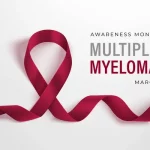Genetic types of cancer represent a small but significant portion of all cancer cases, and can be attributed to inherited genetic mutations that govern the growth and development of cells in the body.
Individuals who carry these mutations are at higher risk of developing certain cancers, which can be triggered by environmental factors or other non-genetic factors.
There are a number of different genetic markers linked to cancer, including mutations in BRCA1 and BRCA2 genes, which significantly increase the risk of developing breast and ovarian cancer. Other genetic factors can lead to an increased risk of colon, stomach, kidney, and other types of cancer.
Testing for genetic cancers has become increasingly common in recent years, with the aim of identifying individuals who are at high risk of developing certain types of cancer due to inheriting genetic mutations. Genetic testing typically involves a blood test, which can be performed in a doctor’s office or through a genetic testing company.
For individuals with a family history of cancer, genetic testing can provide valuable information about their risk of developing cancer and help them make informed decisions about their health. Those who test positive for certain genetic mutations can take steps to reduce their risk of cancer, such as regular screenings and preventive surgery.
It’s important to note that genetic testing is not appropriate for everyone, and should be discussed with a healthcare provider or genetic counselor to determine if it is the right choice for an individual. Additionally, genetic testing can have emotional and psychological effects on a person, so support should be readily available throughout the testing process.
Genetic cancers represent a unique subset of cancer cases that are linked to hereditary genetic mutations. Testing for genetic cancers can assist in the early detection and prevention of cancer for at-risk individuals, but it is important to discuss the potential benefits and risks with a medical expert before deciding on a course of action.





